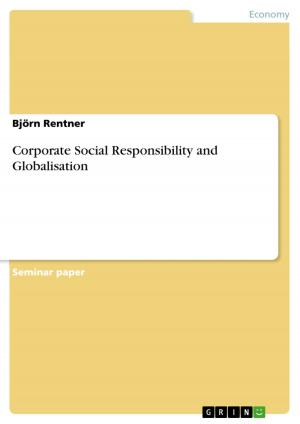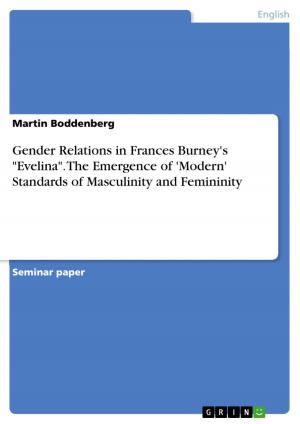Text and Discourse - Gender and Speech
Gender and Speech
Nonfiction, Reference & Language, Language Arts, Linguistics| Author: | Marco Kaiser | ISBN: | 9783638835039 |
| Publisher: | GRIN Publishing | Publication: | August 2, 2007 |
| Imprint: | GRIN Publishing | Language: | English |
| Author: | Marco Kaiser |
| ISBN: | 9783638835039 |
| Publisher: | GRIN Publishing |
| Publication: | August 2, 2007 |
| Imprint: | GRIN Publishing |
| Language: | English |
Seminar paper from the year 2004 in the subject Speech Science / Linguistics, grade: 2, University of Constance, 8 entries in the bibliography, language: English, abstract: George Orwell wrote in his essay 'Politics and the English language' in the year 1946: 'Let meaning choose the word and not the other way around'. Every day people participate in conversations. There are conversations between men, between women and between men and women. If we consider that people we look at have a difference in gender, social class, age, race, nationality, profession and religion, it will be easy to see the differences. They are obviously visible. But I will restrict this work. I look at people of the same language, which means people within the same cultural background, more like a homogenous society or let's call it even tighter a community. In this case I could assume that there are no communicational problems. Even if there are some differences in education, a person who talks to another person can expect that he or she will be understood. Because of the cultural knowledge a person brings into a conversation. Therefore it will not be a problem to understand each other. To summarize such a situation I will phrase this as a society with the same language.
Seminar paper from the year 2004 in the subject Speech Science / Linguistics, grade: 2, University of Constance, 8 entries in the bibliography, language: English, abstract: George Orwell wrote in his essay 'Politics and the English language' in the year 1946: 'Let meaning choose the word and not the other way around'. Every day people participate in conversations. There are conversations between men, between women and between men and women. If we consider that people we look at have a difference in gender, social class, age, race, nationality, profession and religion, it will be easy to see the differences. They are obviously visible. But I will restrict this work. I look at people of the same language, which means people within the same cultural background, more like a homogenous society or let's call it even tighter a community. In this case I could assume that there are no communicational problems. Even if there are some differences in education, a person who talks to another person can expect that he or she will be understood. Because of the cultural knowledge a person brings into a conversation. Therefore it will not be a problem to understand each other. To summarize such a situation I will phrase this as a society with the same language.















